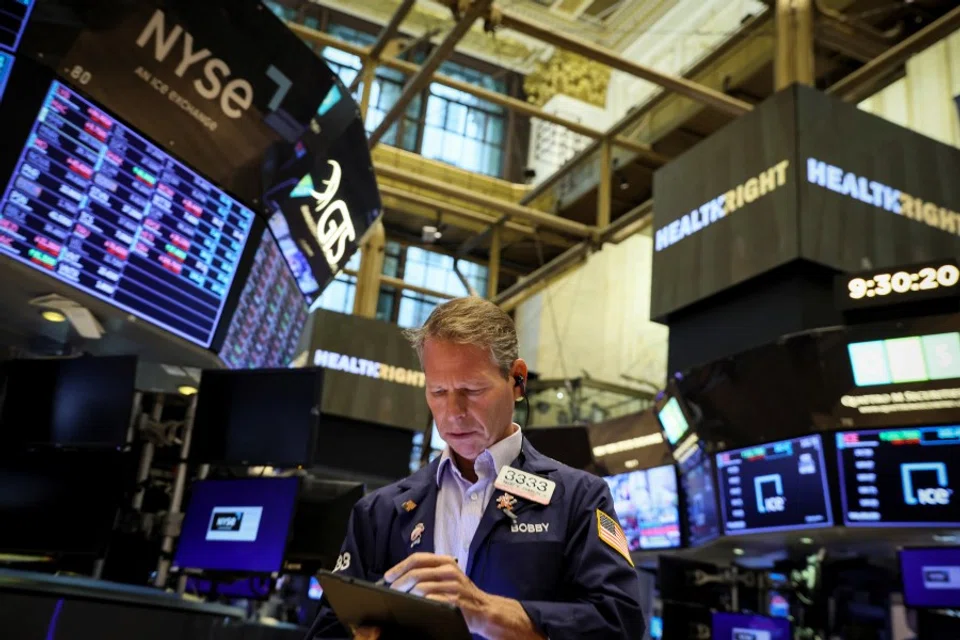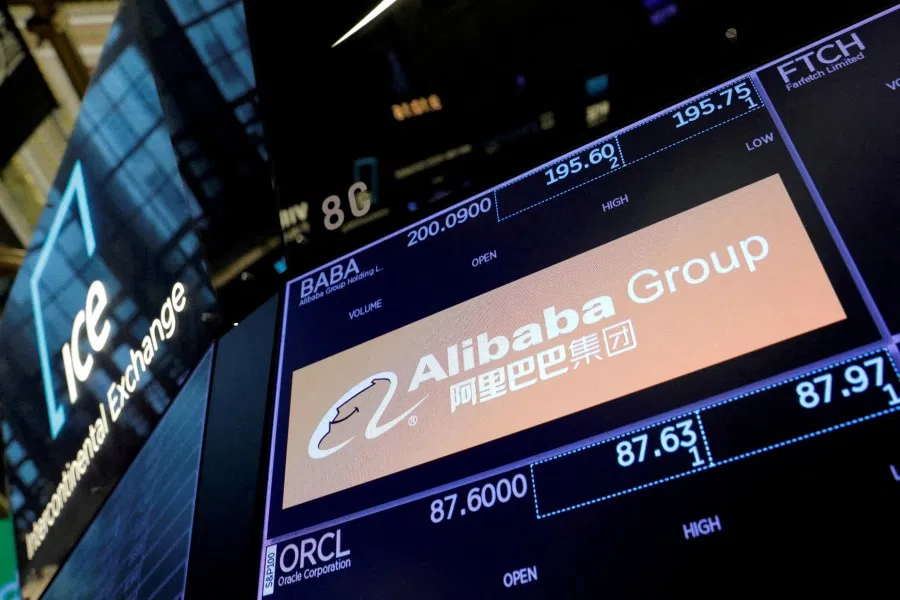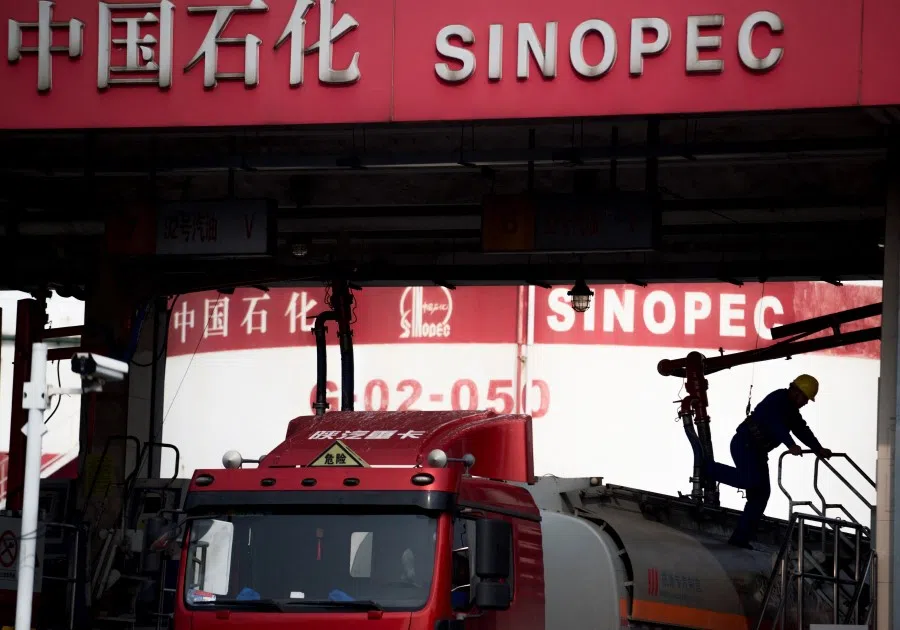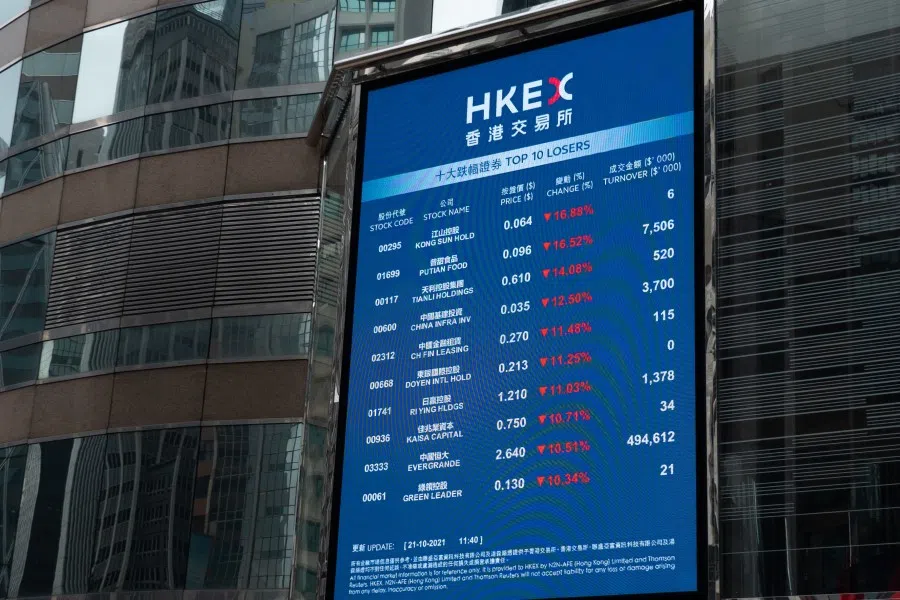Breaking the ice in the China-US audit standoff
In a preliminary agreement, US officials will get their long-sought access to vet accounting companies based in mainland China and Hong Kong and review audit documents related to Chinese businesses. Will this stem the tide of Chinese companies being delisted from US stock exchanges?

(By Caixin journalists Yue Yue, Quan Yue and Han Wei)
As many as 200 Chinese companies and their investors may breathe a sigh of relief after China and the US moved on 26 August to resolve a years-long dispute that threatened to get their stocks kicked off US markets.
Under a preliminary agreement between regulators in the two countries, US officials will get their long-sought access to vet accounting companies based in mainland China and Hong Kong and review audit documents related to Chinese businesses.
The deal marks a breakthrough for resolving a long-lasting standoff that threatened to get Chinese tech giants such as Alibaba Group Holding Ltd. and Baidu Inc. booted from US stock markets. For more than a decade, Beijing resisted giving US authorities access to the audit documents, citing national security concerns.

The threat of delisting Chinese stocks gained traction under the Trump administration. Congress passed a measure called the Holding Foreign Companies Accountable Act in 2020 mandating that securities be barred from trading in the US if American watchdogs couldn't fully inspect audits of their financial statements for three consecutive years.
That measure was at least partly fuelled by the massive accounting scandal at China's US-traded Luckin Coffee Inc. The coffee shop chain revealed in April 2020 that it inflated its 2019 revenue by 2.2 billion RMB (US$310 million). Once an investors' darling, the stock plunged from a peak of more than US$50 in January 2020 to a low of US$1.38 in May 2020, costing investors billions.
As of 26 August, nearly 170 Chinese companies traded on US exchanges were identified by US regulators as facing delisting as soon as 2023 for failing to comply with the law. The companies' total market value tops US$1.5 trillion.
"If cooperation afterward satisfies each side's regulatory needs, there is hope that the audit issue will be resolved and passive delisting will be avoided." - Statement from China Securities Regulatory Commission
Laying the foundation for cooperation
In the absence of an accord, US-traded stocks of Chinese companies suffered rounds of sell-offs amid mounting worries about delisting. That was exacerbated by China's regulatory crackdown on the internet sector and weakening domestic growth amid Covid-19 lockdowns. Some analysts declared the stocks "uninvestable" a few months ago.
In August, several state-owned giants including China Life Insurance Co. Ltd., PetroChina Co. Ltd. and China Petroleum & Chemical Corp. announced plans to voluntarily delist from US exchanges, following the departure of telecom provider China Mobile Ltd. and energy producer CNOOC Ltd. So far, only two of the state-owned companies remaining on the US market - China Eastern Airlines and China Southern Airlines - haven't divulged a plan to leave the market. Meanwhile, major tech stocks such as Alibaba are seeking primary listings in Hong Kong.
The China Securities Regulatory Commission (CSRC) on 26 August called the preliminary audit agreement an important step toward addressing the issue.
"It lays the foundation for proactive, professional and pragmatic cooperation in the next stage," the CSRC said in a statement. "If cooperation afterward satisfies each side's regulatory needs, there is hope that the audit issue will be resolved and passive delisting will be avoided."

The US Public Company Accounting Oversight Board (PCAOB) said that it was the most detailed and prescriptive agreement the regulator has ever reached with China. The US Congress established the board in 2002 and expanded its authority in 2010 for overseeing audits of US-traded companies. It is supervised by the powerful Securities and Exchange Commission (SEC).
The China-US agreement is only a first step. The PCAOB will need to get a large number of its inspectors on the ground in China, and audit checks of businesses could take months before a determination on compliance can be made. The PCAOB said that it is preparing to have inspectors in place by mid-September and to begin conducting on-site inspections and investigations of businesses based in mainland China and Hong Kong.
The PCAOB has complained about not being able to satisfactorily conduct an inspection of any audit work performed in China, while the Chinese side has long cited state secrets and national security concerns in its refusal to directly open auditors' books to US authorities.
"After the agreement, inspections must be carried out to create favorable conditions for the final resolution for Chinese stocks," a person close to Chinese regulators said.
The accord will be meaningful only if the PCAOB can actually inspect and completely investigate audit companies in China, SEC chairman Gary Gensler said on 26 August in a statement.
As of 30 June, 16 accounting firms registered in mainland China and Hong Kong signed audit reports for 177 public companies with China-based operations. Eight of the accounting firms are Hong Kong-based, working for 41 Chinese companies including Alibaba.
Long standoff
China and the US have been locked in protracted negotiations since 2007 over accounting issues. The main disputes focused on onsite inspections and access to audit working papers.
The PCAOB has complained about not being able to satisfactorily conduct an inspection of any audit work performed in China, while the Chinese side has long cited state secrets and national security concerns in its refusal to directly open auditors' books to US authorities.
According to CSRC data issued in April 2020, the Chinese regulatory body had provided the audit working papers of only 14 US-traded Chinese companies to the PCAOB and the SEC.
In China, accountants are bound by a regulation - the Standard on Quality Control for Accounting Firms No. 5101 - which mandates that accounting firms keep working papers confidential.

As for the cross-border sharing of documents, the rules for Chinese businesses selling stocks overseas states that documents such as work papers prepared on the mainland should be stored on the mainland, according to an October 2009 regulation by the CSRC, the National Administration of State Secrets Protection, and the National Archives Administration. If documents involving state secrets, national security or major national interests are to be provided to foreign regulatory agencies, companies must notify the authorities and seek approval.
The CSRC, the Chinese Ministry of Finance and the PCAOB signed a memorandum of understanding in May 2013 that aimed to set up a framework for the "production and exchange" of audit documents relevant to investigations. However, that accord yielded little progress.
The two sides also entered an agreement for a pilot inspection programme in 2016. The PCAOB attempted an inspection audit of a China-based public company the following year. However, the board could not complete the inspection as the CSRC refused to provide direct access to relevant work papers and redacted many other work papers, citing national security or state secret concerns, according to a report published in July 2020 by the US President's Working Group on Financial Markets.
Some companies said they are concerned that such access would allow foreign regulators to see their confidential business information. But experts said that reflects a misunderstanding.

Little progress was made since 2018. Following the Luckin scandal in 2020, the CSRC reaffirmed its commitments to cooperate with foreign regulators to combat cross-border financial fraud and restore investor confidence. Talks with US regulators over audit issues picked up steam this year as top Chinese policymakers made repeated pledges to address the dispute.
Resolving differences
The agreement published on 26 August clarifies the scope and approach of audit cooperation between Chinese and US regulators. Under the agreement, the two sides will communicate and coordinate inspection and investigation plans in advance. The PCAOB will obtain audit papers and other documents from Chinese regulatory authorities and will conduct interviews and inquiries with personnel at the accounting firms with the participation and assistance of the Chinese side, according to the agreement.
According to the PCAOB's website, the work papers at the centre of the issue are "records kept by the auditor of the procedures applied, the tests performed, the information obtained, and the pertinent conclusions reached" during audits. Some examples of such records include analyses, memoranda, letters of confirmation and representation, and abstracts of company documents.
Some companies said they are concerned that such access would allow foreign regulators to see their confidential business information. But experts said that reflects a misunderstanding.
"Compliance is the PCAOB's main concern," a person from a Chinese accounting firm said. "It mainly inspects compliance matters in processes and procedures as well as the classification of documents. They're not interested in the specific data of a company."
"Carrying out joint inspections is a common practice in international cooperation." - Xu Jia, an investment banking executive at China International Capital Corp.

Xu Jia, an investment banking executive at China International Capital Corp., said audit work papers rarely involve confidential business information or state secrets.
In a 2020 interview with Caixin, CSRC chairman Yi Huiman said that China has never stopped companies from providing audit working papers to overseas regulators. Chinese law stipulates that exchanging information, such as providing audit working papers for foreign regulators, should be conducted through regulatory cooperation and should comply with security and confidentiality regulations, Yi said. Carrying out joint inspections is a common practice in international cooperation, he added.
In April, the CSRC and three other ministries published a draft guideline for managing documents and confidential information on overseas securities sales, spelling out detailed requirements that are expected to pave the way for cross-border supervisory cooperation.
Data and privacy protection is a key issue in audit cooperation between the PCAOB and other countries. The issue is often addressed by signing specific data protection agreements between the agency and local regulators. The CSRC said that China-US audit cooperation will follow similar arrangements.
"China and the US can agree on conditions, procedures and standards that are reasonable and in line with the interests of both parties in terms of data protection and territorial supervision," said Cai Hua, a partner at the law firm Cooley LLP. "The two countries have had regulatory cooperation in various aspects in the past, and there is no reason that the audit issue cannot be solved."
... an increasing number of US-traded Chinese businesses are making their way to the Hong Kong market through dual primary listings or secondary listings to better weather regulatory uncertainties.
Opening up China's capital market
Despite the audit dispute, Chinese companies have remained enthusiastic about selling shares and raising money in the vast US capital market. So far this year, more than 20 Chinese businesses have submitted or updated applications for US share sales, including Geely Automobile Holdings Ltd. and SPI Energy Co. Ltd. Many of them hired US-based accounting firms to address regulatory risks.
In August, the CSRC's Yi in an article pledged to maintain smooth overseas listing channels and support all kinds of enterprises to raise capital by going public abroad in accordance with laws and regulations.
In a recent meeting, the CSRC vowed to step up regulatory preparation to support domestic companies' overseas stock sales as part of efforts to continue the opening of China's capital market.
At the same time, China is broadening a stock connect programme to link its bourses with more overseas markets and allow domestic stocks to trade through global depository receipts (GDRs). China initiated the Shanghai-London Stock Connect programme in June 2019, allowing certain companies traded on either the Shanghai Stock Exchange or the London Stock Exchange to issue depositary receipts on the other. Late last year, the system was broadened to include capital markets in Germany and Switzerland.
As of late July, 12 enterprises disclosed plans to issue GDRs this year. Four domestically traded companies have debuted on the SIX Swiss Exchange in Switzerland via issuance of such securities.
Meanwhile, an increasing number of US-traded Chinese businesses are making their way to the Hong Kong market through dual primary listings or secondary listings to better weather regulatory uncertainties. Since 2019, a flurry of big names including Alibaba, JD.com, NetEase and Nio Inc. completed so-called homecoming listings in Hong Kong.

A total of 59 US-traded Chinese companies with a combined US$175 billion of market cap, already met the basic requirements for a dual primary listing on the city's main board, according to estimates by Tianfeng analysts in June. Among them, 21 also met the bar for a secondary flotation. The dual-primary listing figure could increase to 64 if companies that potentially satisfy the requirements were included, the analysts said.
Securities regulators have repeatedly affirmed their support for companies' free choice of listing venues and their commitment to further open up China's capital market.
"We will continue to pursue development through opening up and promote development through regulation, maintain smooth overseas financing channels, and provide clear, transparent and operable rules for companies' overseas listing activities," the CSRC said.
"In this sense, the agreement on the China-US audit supervision cooperation agreement has far-reaching significance for the overseas listing of enterprises," the commission added.
This article was first published by Caixin Global as "Cover Story: Breaking the Ice in the China-U.S. Audit Standoff". Caixin Global is one of the most respected sources for macroeconomic, financial and business news and information about China.
Related: China-US audit inspection deal does not mean greater financial cooperation | Financial decoupling: China's next step amid intensifying China-US rivalry? | US regulations strangling the life out of China concept stocks? | Will China concept stocks pull out of the US completely? | China's AI giant SenseTime blacklisted: Is China-US financial decoupling taking place?





